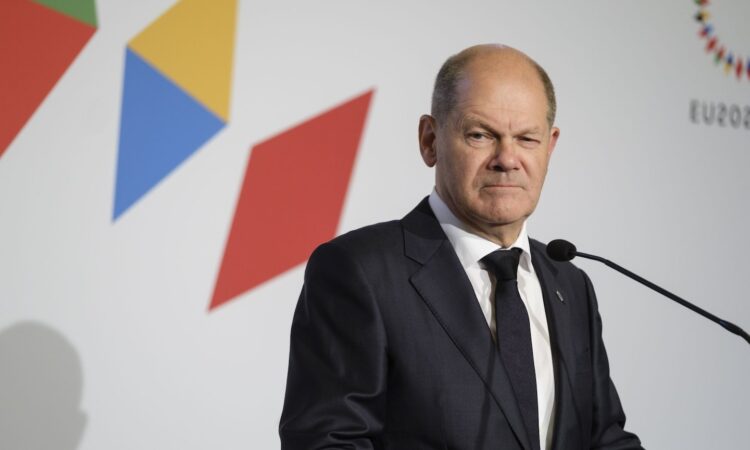
The reported structure looks closer to the so-called SURE program, which offered loans rather than grants of up to €100 billion for worker support during the pandemic, rather than the taboo-busting recovery money that’s still being disbursed to the likes of Italy provided reform and investment pledges are met. In August, Scholz openly praised SURE as a “pragmatic” solution that had helped more than 30 million Europeans.
What makes this such a big U-turn is that Germany has resisted the idea for months, implying it wasn’t warranted — even in the face of an outcry from the rest of the EU over its own domestic energy-aid plan of up to €200 billion. The plan’s huge size, coupled with Berlin’s “nein” all year to more ambitious burden-sharing, led European Commissioners Thierry Breton and Paolo Gentiloni to warn such beggar-thy-neighbor moves could undermine EU solidarity and unity. Hungarian Prime Minister Viktor Orban, rather less tastefully, called it “ cannibalism.”
It also reflects a need to find urgent solutions in the face of Vladimir Putin’s escalating war and natural-gas shutoff as a painful recession looms. Seven months into Russia’s invasion of Ukraine, and despite the surprising unity on sanctions, EU leaders have singularly failed to cover themselves in glory in unlocking financial support to cushion the fallout at home. Leaders’ summits have come and gone with plenty of ideas — such as capping the price of gas — but few specifics. With citizens increasingly expected to do their part in turning down the thermostat and cutting energy demand, and with corporate bankruptcies on the rise, the cost of inaction is too high.
“If ever there was a moment for ‘more Europe’, this is it,” as European Parliament President Roberta Metsola said last month.
So if more money is on its way, what might it be spent on? Any new SURE-like initiative is unlikely to serve as a straightforward worker-support tool since labor markets remain open for business. Nils Redeker, deputy director of the Hertie School’s Jacques Delors Centre, reckons the objective should be to safeguard the EU’s single market and support huge investment needs, such as energy infrastructure, that have become vital this year. Underinvestment in supply chains during the pandemic has made current inflationary pressures worse.
A more targeted guide to how money can help might even be found in the EU’s “Fit for 55” plan laying out its ambitious climate goals. While this decades-long energy-transition plan was unveiled over a year ago, and seems pretty anachronistic in a world where more coal is being burned to replace Russian gas, it includes specific instruments to help protect consumers from higher energy prices. This so-called “social climate fund,” initially designed as a €72 billion cushion for vulnerable households and to finance more energy-efficient buildings, could be retooled and launched sooner to fit the current crisis, argues Elisabetta Cornago, of the Centre for European Reform.
This would fit with the International Monetary Fund’s plea for countries to stay “laser-focused” on targeting financial support to those who need it most. After fiscal reality in the current crisis hit the UK, now fiscal solidarity looks to be hitting Germany. It’s not a Hamiltonian leap, but it’ll do.
More From Bloomberg Opinion:
• A European Crisis Is Coming. Which Kind Will It Be?: Tyler Cowen
• 44 European Leaders Gather. What Could Go Wrong?: Andreas Kluth
• Winter Reality Is Sinking In for EU Leaders: Lionel Laurent
This column does not necessarily reflect the opinion of the editorial board or Bloomberg LP and its owners.
Lionel Laurent is a Bloomberg Opinion columnist covering digital currencies, the European Union and France. Previously, he was a reporter for Reuters and Forbes.
More stories like this are available on bloomberg.com/opinion






